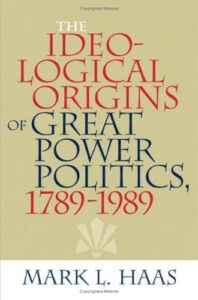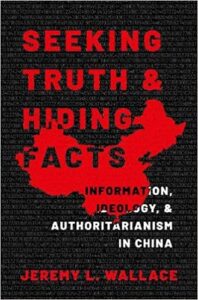Is the Chinese government about to collapse? Michael Beckley, an associate professor of political science at Tufts University, goes over some common myths and facts about US and China relations: https://t.co/T01vufwdpF pic.twitter.com/nax4OSmsrN
— WIRED (@WIRED) March 7, 2021
The United States and China espouse opposing visions of international order, with Beijing portraying itself as the world’s defender of order and hierarchy against a hedonistic and imperialist West, while, the U.S. is rallying coalitions to make the world safe for democracy and contain Chinese power, notes Michael Beckley, Associate Professor in Political Science at Tufts University and a Visiting Scholar at the American Enterprise Institute.
Re-engagers call for both countries to set ideology aside, but that is not so easy to do because ideology is inextricably linked to both countries’ regime stability, he writes for Johns Hopkins’ Kissinger Center for Global Affairs:
[I]t is not easy for countries to be half-communist and half-capitalist, for example, or half-fascist and half-democratic, and steps that one regime takes to promote its ideology can threaten the way of life and legitimacy of others. As Mark Haas has shown, the “ideological distance” between two great powers is a reliable predictor of the degree of conflict between them because ideology fundamentally shapes both sides’ vital interests and choice of allies.
 The CCP may not want to export a specific ideology, but Chinese leaders naturally want there to be more authoritarian governments in the world because fellow autocrats will be less likely to criticize or sanction China for its abysmal human rights record, Beckley adds:
The CCP may not want to export a specific ideology, but Chinese leaders naturally want there to be more authoritarian governments in the world because fellow autocrats will be less likely to criticize or sanction China for its abysmal human rights record, Beckley adds:
Chinese leaders also would prefer democracies to look shambolic and dysfunctional because then the Chinese people will be less likely to admire liberal systems and demand greater political rights from the CCP. The United States, on the other hand, wants an international environment conducive to maintaining its own democratic institutions, especially now that the stability of those institutions can no longer be taken for granted. In short, both countries promote their regime types abroad to secure their regimes at home.
This ideological competition can be partially contained—the United States and China, for example, could forswear direct attempts to topple each other’s regimes—but it cannot be set aside entirely, he concludes.
China’s Xi Jinping is substituting rule by law for rule of law, The Economist reports:
 After Mao Zedong died in 1976, ending years of ideological purges and frenzies, party leaders shunned anything resembling a personality cult or one-man rule. Political theories were given anonymous, bland names, like “The Three Represents”. Today, Mr Xi’s injunctions are a staple of everyday life. And in this era of personalised rule, a puzzle presents itself. For even as Mr Xi’s words enjoy edict-like weight, his underlings are busy turning his signature policies into formal legislation.
After Mao Zedong died in 1976, ending years of ideological purges and frenzies, party leaders shunned anything resembling a personality cult or one-man rule. Political theories were given anonymous, bland names, like “The Three Represents”. Today, Mr Xi’s injunctions are a staple of everyday life. And in this era of personalised rule, a puzzle presents itself. For even as Mr Xi’s words enjoy edict-like weight, his underlings are busy turning his signature policies into formal legislation.
It is crucial for the U.S. and China to avoid framing their competition in ideological terms, as “a battle between democracy and autocracy,” argues Kai He, Professor of International Relations at Griffith University in Brisbane, Australia, and a Nonresident Senior Fellow at the United States Institute of Peace.
Although the Chinese Communist Party is exceptionally ideological at home, when Xi speaks to other countries, he never characterizes China’s competition with the United States as an existential battle between irreconcilable worldviews. If Biden has, at times, tried to be an ideological boxer in foreign affairs, Xi prefers tai chi, avoiding direct contact, he writes for Foreign Affairs:
The reality is that a number of Asian countries—such as Singapore and Vietnam—neither have nor want systems modeled on that of the United States. Chest-beating about democracy can alienate people who have watched U.S. democracy falter at home. Xi’s rhetoric avoids suggesting that other countries must ally themselves ideologically with China in order to cooperate with it, leaving space for them to benefit from and keep the peace with both Beijing and Washington.







